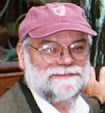1. How old were you during the Vietnam War? Where did you live?
2. What are some vivid memories you have about the time? What do you consider to be the most important events? Why?
3. What were some of the tensions in society? Was there racial and gender equality?
4. What was your role as a conscientious objector? What prompted you to become one? What was the process like?
5. Did you participate in any protests?
6. How were your friends and/or family affected by the war? How was your life different during the war?
7. How did you receive most of your news about what was going on in the US and world during the time?
8. How was popular culture affected by the war?
9. Were there generational conflicts surrounding the war/ those who resisted service?
Gee, this looks more like a book than a simple blog response! But I will give it a whirl. The last question made me cry all of a sudden as I remembered the May 4th, 1970 Kent State shootings. My cousin Maggie Brock was on campus, practically in the middle of the smoke, the bullets, the blood. I called my Mom and Dad from the University of Notre Dame--I was a senior 5 weeks from graduation. And I proceeded, amid my tears, confusion, and anger, to yell at my Mom and Dad (people I loved dearly, who bore no blame for the war or the Kent State massacre). Such deep regret in me now for that phone call. I hope they forgave me!
 |
| The iconic image, tattooed on my heart. |
Yes, there was generational conflict over the war. Our fathers had all fought in World War II. Opposing the war felt like being a traitor to the sacrifices our Dads had made 20-30 years earlier. There's a great book by James Carroll about his conflict with his father over the war--"An American Requiem."


No comments:
Post a Comment